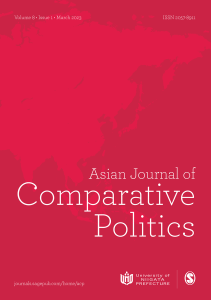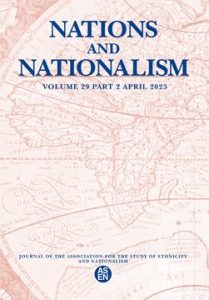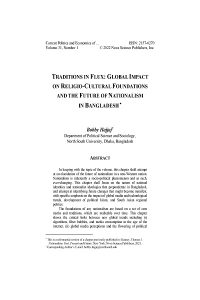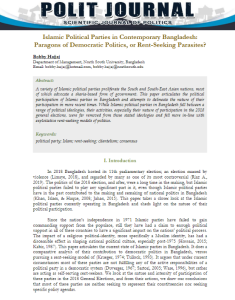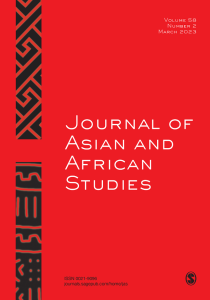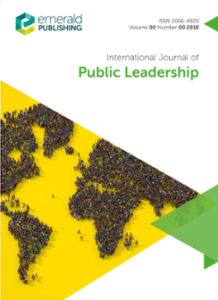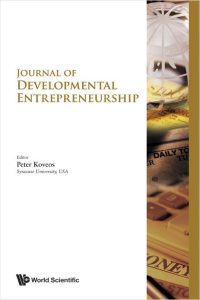Recent Journal Articles
BY BOBBY HAJJAJ
BY BOBBY HAJJAJ
Identity formation is a complex process and has been discussed by post-structuralist discourse theorist Ernesto Laclau. This paper focuses on Laclau’s proposed ideas on the means of identity production and populism and studies the popular independence movement for Bangladesh under that rubric. It locates charismatic leadership as a necessary condition for populism and identifies Bangabandhu Sheikh Mujibur Rahman as the charismat suturing the various chains of equivalence that rose to become the populist movement that resulted in the nation’s struggle for independence in 1971. This paper also looks at the transformational leadership of Sheikh Mujibur Rahman and acknowledges it as a necessary condition for the patterns of identity creation in East Bengal in the late 1960s.
BY BOBBY HAJJAJ
BY BOBBY HAJJAJ
BY BOBBY HAJJAJ
BY BOBBY HAJJAJ
BY BOBBY HAJJAJ
Recent academic work on leadership has focused largely on organizational leadership. This study takes a close look at political leadership, especially that given to popular movements, and delineates a new model of transformational leadership. The current study borrows models from organizational leadership research and applies them to a specific case study to reveal critical concepts underlying transformational leadership. Application of these models to Bangladesh’s founding father, Bangabandhu Sheikh Mujibur Rahman, during the two decades of the 1950 and 1960s, shows potential for a new flexible framework for transformational leadership with added significance on leader–follower relatedness, socio-historical context and charisma.
BY BOBBY HAJJAJ
In 1971, the new country of Bangladesh was carved into the world political map. The country’s first government identified it as a secular nation primarily due to the religious identity averred by the Pakistani state apparatus, its former oppressor. Over half a century after its independence, the country has seen a considerable impact of religion in politics, with many academic publications on Islamist movements and politics since the early 2000s. A conspicuous gap in this literature is the lack of focus on Islamist political parties, even though all Islamist political movements emerged from within those parties. This paper argues that the continued existence of Islamist parties is due to two specific factors: institutional change and large madrasa networks. This paper adopts a ‘rational choice’ approach to investigate these two factors critically.
BY BOBBY HAJJAJ
Discussions on entrepreneurial ecosystems have been a relatively recent addition to the corpus of entrepreneurship literature and have focused heavily on fostering aggressive growth, often technology-based, ventures. Here, we tune the ecosystem model to fit the non-technologically innovative entrepreneurial spaces of emerging economies. We propose a new framework for viewing the cultural effect on entrepreneurship through interactions between the individual entrepreneur’s identity, and networks within specific infrastructural and institutional regimes wrought by predominant culture. In applying the model to mid-twentieth century Bangladesh, we find a culturally predominant negative perception of entrepreneurial activity. We show this contributed to the growth of certain types of entrepreneurship in the country that were rife with (i) higher risk-tolerant behavior among entrepreneurs and (ii) the rise of entrepreneurs having strong links with specific social networks, which together led to an increase in institutional decay and the rise of corruption.
BY BOBBY HAJJAJ
The production and perpetuation of the colonial empire have had lasting effects on the
colonised. The state of most developing nations as they are today can be traced back to
their colonial roots. In this paper, we present evidence showing that colonial empires
were based on a relationship of extraction from the colonies. We also show the nature
and means of that extraction in Bengal, now Bangladesh. The nature of that extractive
relationship and its unintended consequences led to the development of certain types of
institutions that created the poverty of initial conditions.
Keywords: Poverty of initial conditions, Colonialism, Institutions, Economic history,
Bengal.
